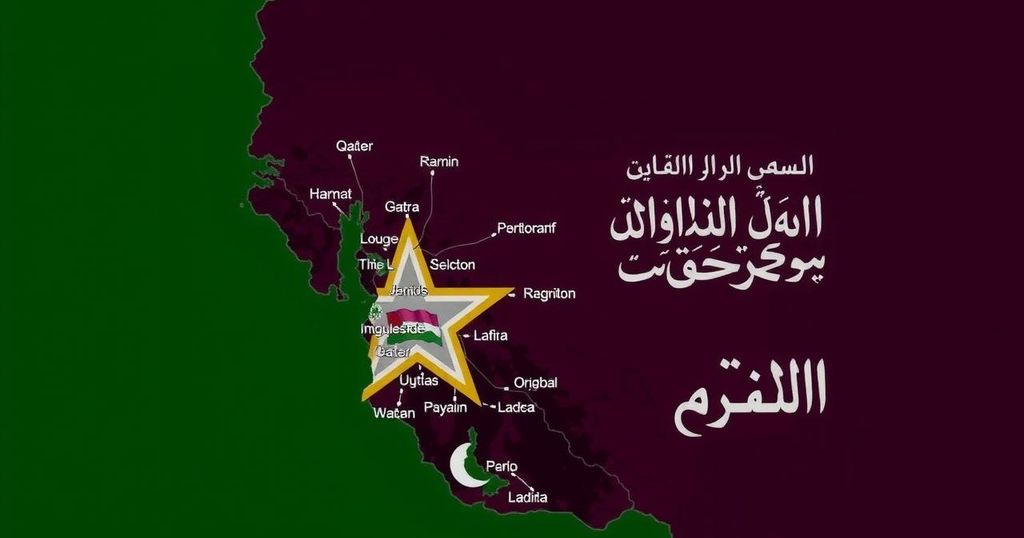Qatar has suspended its mediating efforts for a Gaza ceasefire until Hamas and Israel show a genuine commitment to negotiations. This decision is a significant setback in the ongoing conflict and follows US pressure for Hamas to abandon its political base in Doha due to their repeated rejections of hostage release proposals.
Qatar has officially decided to cease its mediation efforts for a ceasefire in Gaza until both Hamas and Israel demonstrate a sincere commitment to resuming negotiations. An official cited by Reuters noted that Qatar has come to the conclusion that Hamas’ political presence in Doha is no longer effective. This withdrawal represents a considerable setback in attempts to resolve the ongoing conflict, which escalated following Hamas’s attack on Israel on October 7, 2023. As the situation progressed, Qatari officials have emphasized the necessity for both parties to exhibit genuine interest in conflict resolution before any mediation can resume. This decision has been communicated to Hamas, Israel, and the United States. Furthermore, reports indicate that the US has urged Qatar to ensure that Hamas does not maintain its political base in Doha, asserting that Hamas leaders should not be welcome in any American ally’s capital given their refusal to engage in hostage release proposals. Qatar, a significant partner of the United States in the Middle East, has hosted Hamas’ political office for over a decade, facilitating the stay of several senior leaders. The calls for a reassessment of this arrangement have intensified following Hamas’s continued rejection of proposals to resolve the hostage situation. The delicate nature of these dynamics reflects the broader geopolitical stakes involved in the ongoing Gaza conflict.
The conflict in Gaza has witnessed a rapid escalation since Hamas’s attack on Israel, prompting urgent calls for ceasefire negotiations. Qatar has historically played a role as a mediator, hosting Hamas and facilitating dialogue with other key players, including the United States. However, the recent developments signal a shift in Qatar’s position, driven by mounting pressure from the US and a reassessment of Hamas’s actions, particularly its refusal to engage in humanitarian negotiations. The situation highlights the challenges of fostering a stable peace process amidst ongoing hostilities.
In conclusion, Qatar’s withdrawal from mediating a ceasefire deal underscores the complexities and difficulties in achieving peace between Hamas and Israel. It reflects a growing consensus among international stakeholders, particularly the United States, that Hamas’s refusal to participate in negotiations necessitates a reevaluation of its political standing in Doha. The future of ceasefire efforts depends significantly on the willingness of both Hamas and Israel to negotiate sincerely in the interest of a lasting resolution.
Original Source: indianexpress.com







